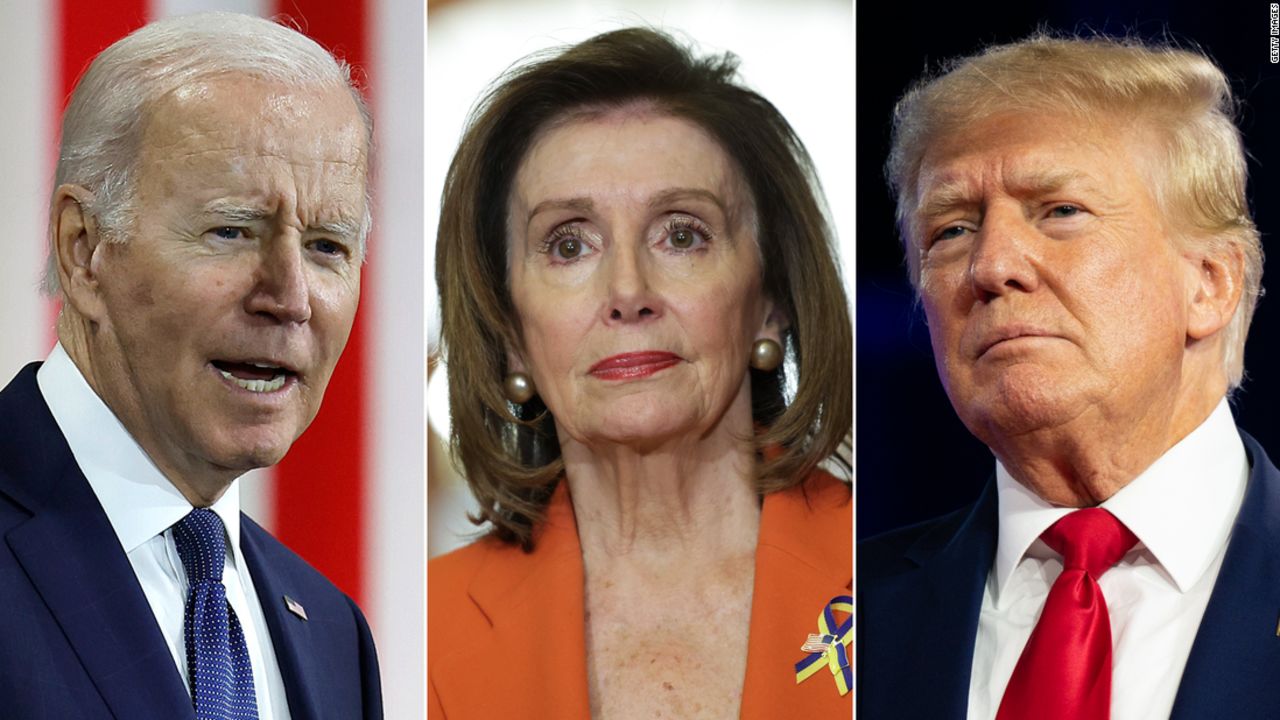(Trends Wide) — On Sunday, the United States will experience a unique moment in its history, when a sitting president turns 80.
Administration aides would surely prefer it to the other big family celebration at the White House this weekend. the wedding of President Joe Biden’s granddaughter, Naomi, grabs most of the headlines.
The political sensitivities of having an octogenarian in the Oval Office mean there is unlikely to be any big news about birthday parties, unlike when President Barack Obama turned 50 while in office and threw several parties, including one that featured a re-election fundraiser with Herbie Hancock and Jennifer Hudson.
Biden’s entry into his ninth decade will only bring new speculation about whether he will run for re-election, a decision he says will be made with his family. The president has said that his intention is to seek a second term, but after a lifetime marked by personal tragedy, he has great respect for fate. Whatever happens, the question of the president’s health and mental capacity will surely be at the center of any 2024 campaign, both because Republicans will put it there and because it’s a reasonable concern for voters evaluating their commander-in-chief. .
Biden’s birthday comes at a time when the question of when you are too old to serve in top political leadership positions is under a new focus.
On Thursday, for example, House Speaker Nancy Pelosi, 82, announced she would step down as the Democratic Party moves into the minority in the next Congress.
“For me, the time has come for a new generation to lead the Democratic Caucus that I so highly respect,” Pelosi said, in a speech that felt like the end of an era.
After two decades at the top of her party in the House, Pelosi was doing something critical to a democracy’s ability to sustain and regenerate itself: she voluntarily relinquished power, an honorable tradition inaugurated by President George Washington when he refused to seek a third term. But Pelosi also implicitly raised the question that if now is the time for her to hand over authority and responsibility to her younger colleagues, is it time for others to do the same?
After all, the seductive idea of the passing of the generational torch has been a powerful symbol in modern American history, fueling the rise of presidents like John Kennedy and Bill Clinton, for example. And the poignant truth about American politics is that decisions are being made on issues like climate change, foreign policy and health care that will reverberate for decades to come and that top leaders will not live to see.
Trump and the threat of a young suitor
But the old guard is still in control right now.
Two days before Pelosi’s announcement, a slightly younger political titan, Donald Trump, said that at the age of 76 he was far from ready to leave the stage. The former president launched a campaign for a new term in the White House that would take him well past his 80th birthday if he won the 2024 election.
In the Senate, Kentucky Minority Leader Mitch McConnell, 80, resisted an effort by a younger colleague, Florida Sen. Rick Scott, 69, to unseat him from his leadership post. Senate Majority Leader Chuck Schumer, who is celebrating the Democratic victory in the midterms, meaning the party will hang on to the chamber, is relatively young at 71.
In some ways, the enthusiasm and drive of older leaders is admirable at an age when many people are long retired, and an example to society that the elderly are just as capable and dignified as the younger generations. The elixir of power that leads them to endure the indignities and spotlight of a political career is still a wonder. For example, Biden, who spent most of his adult life chasing the presidency, has just returned from a grueling trip to Egypt and Asia. The flight home on Air Force One alone took 24 hours.
However, the prominence of the seventies and eighties at the top of the political tree also raises questions about whether it is healthy that younger politicians at this point in American history are not taking more responsibility or holding more power. There is a sense that neither political party has done a good job grooming younger heirs, a scenario that risks creating further distance between politicians and future generations. That could be a particular problem for Democrats, as Trends Wide exit polls in the midterms suggested that 55% of the party’s voters were between the ages of 18 and 44. The majority of Republican voters, 54%, were over the age of 45.
Institutional political traditions are also an impediment to youth, especially in Congress, where power is based on seniority that requires years of labor to accumulate.
At the same time, however, younger politicians may also need to look in the mirror. The reason Biden, Trump and Pelosi remain the most powerful leaders in the country is that, thus far, younger, more dynamic and storied figures have not emerged from below to force them out of the picture. Biden and Trump battled younger challengers in their presidential primaries and proved themselves to their own constituencies. Pelosi’s ability to hold his group together and support Democratic presidents made her an icon in his party, and aside from a few periods of complaining from his younger subordinates, she escaped serious leadership challenges. .
This is an indicator of the dearth of emerging talent in the Democratic Party: the most energetic campaigner in the midterms was from a younger generation, but having already served two terms in the White House, former President Barack Obama served to emphasize the lack of top talent on the Democratic bench.
Meanwhile, Trump may have more to fear from a young suitor.
Florida Gov. Ron DeSantis, 44, was born in the 1970s, at a time when the most recent Republican president filled the tabloids while building a reputation as a rogue dealmaker and New York City playboy. (When DeSantis was born in 1978, Biden was already in his second term in the Senate. If the Florida governor were to win the Republican nomination and face Biden in a general election, the president would face the unattractive prospect of being in a debate with a rival about half his age).
Is it time for younger leaders to step up?
Trump’s early announcement of a third presidential campaign this week failed to rally the party around him amid mounting criticism that the former president’s voter denial was responsible for suppressing a Republican red wave in the midterms. Trump’s best hope, however, is that his fervent voter base might view any attempt by DeSantis, who roared for re-election last week, to unseat his hero as treason.
That’s one reason DeSantis, who, after all, has time on his side, might finally decide to pass up the 2024 race. But already there are signs that the post-Trump generation of politicians is eager to take forward your move.
Former UN Ambassador Nikki Haley, former Vice President Mike Pence, former Secretary of State Mike Pompeo, Missouri Senator Josh Hawley and South Dakota Governor Kristi Noem have all been mentioned as possible heirs to his throne, though not there is no sign that the former president is willing to resign.
A better-than-expected performance by Democrats in the midterms helped allay some of the questions about Biden’s decision on a re-election run. The president’s position is also helped by the lack of clear successors.
Democrats worry about Vice President Kamala Harris’s prospects should Biden not run, after his failed 2020 primary bid and uneven performance in office over the past two years. Transportation Secretary Pete Buttigieg was the rising star of that campaign, but his path to the Democratic nomination looks challenging. The midterm elections produced some potential Democratic candidates of the future: re-elected Michigan Governor Gretchen Whitmer and new Pennsylvania Governor Josh Shapiro. But there isn’t exactly a generational star like Obama waiting to rise to power. and there is no obligation for Biden to resign because an unmissable younger leader is waiting in the wings.
Still, polls this year have consistently suggested that Americans are not interested in a Trump-Biden rematch. And in midterm exit polls, only 30% of those polled wanted the president to run for re-election. Still, with a 40% approval rating in those exit polls, he is slightly more popular than Trump, who only had a 38% approval rating among all voters.
In her speech announcing her departure from leadership on Thursday, Pelosi recalled that “the scriptures teach us that there is a season for everything.”
However, his epiphany is unlikely to stop other aging political leaders trying to defy time.






